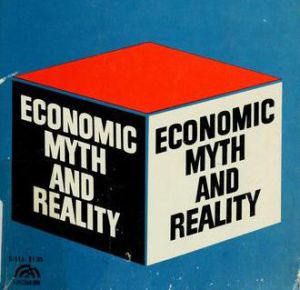Diane Coyle has an excellent article in the FT about an apparent puzzle. Why do executives get incentive bonuses (extra pay on meeting some target), but most workers do not? Her article is based around a classic paper by Bengt Holmstrom and Paul Milgrom. Their basic argument is that incentive pay linked to specific targets works (it increases effort) when tasks are simple and effort can be easily measured. However if tasks are complex, and only some aspects of performance can be accurately measured, incentive pay can distort the allocation of effort between those tasks, leading to undesirable outcomes … So target related bonuses make sense for workers conducting simple tasks where effort can be easily measured, but are a bad idea for workers undertaking complex tasks where only some aspects of performance can be measured. To quote Diane: “Indeed, the best arrangement would seem to be the opposite of the pattern we observe now. Corporate executives and senior bankers oing complex jobs involving many impossible-to-monitor activities are the last people who ought to be paid via an incentive scheme; while bonuses for fast-food workers or shop-floor employees make more sense.” The implication she draws is straightforward: the bonus culture for corporate executives and senior bankers should end.
Topics:
Lars Pålsson Syll considers the following as important: Economics
This could be interesting, too:
Lars Pålsson Syll writes Schuldenbremse bye bye
Lars Pålsson Syll writes What’s wrong with economics — a primer
Lars Pålsson Syll writes Krigskeynesianismens återkomst
Lars Pålsson Syll writes Finding Eigenvalues and Eigenvectors (student stuff)
Diane Coyle has an excellent article in the FT about an apparent puzzle. Why do executives get incentive bonuses (extra pay on meeting some target), but most workers do not? Her article is based around a classic paper by Bengt Holmstrom and Paul Milgrom.
Their basic argument is that incentive pay linked to specific targets works (it increases effort) when tasks are simple and effort can be easily measured. However if tasks are complex, and only some aspects of performance can be accurately measured, incentive pay can distort the allocation of effort between those tasks, leading to undesirable outcomes …
So target related bonuses make sense for workers conducting simple tasks where effort can be easily measured, but are a bad idea for workers undertaking complex tasks where only some aspects of performance can be measured. To quote Diane:
“Indeed, the best arrangement would seem to be the opposite of the pattern we observe now. Corporate executives and senior bankers oing complex jobs involving many impossible-to-monitor activities are the last people who ought to be paid via an incentive scheme; while bonuses for fast-food workers or shop-floor employees make more sense.”
The implication she draws is straightforward: the bonus culture for corporate executives and senior bankers should end. But this leaves us with a puzzle: why did this bonus culture arise in the first place? Perhaps bonuses created something beneficial that we are missing …
The executive has a lot of bargaining power (what successful firm wants their CEO to quit), but whether they choose to use it depends on the reward from doing so. If top tax rates are low, the rewards are high.
The executive still has to convince their firm to pay them more. What better way to do this than to suggest they get paid a lot more only if the company is successful …
Executive bonuses are a way for senior management to extract rent from their firms, which is a quick way of saying that these high salaries redistribute money from everyone else to themselves.
At a deeper level this ‘puzzle’ confirms that the alleged close connection between productivity and remuneration postulated in mainstream income distribution theory simply does not exist.
The idea that capitalism is an expression of impartial market forces of supply and demand, bears but little resemblance to actual reality. Especially when it comes to people that basically set their own salaries, you find a rather strong inclination for generous self-rewarding.
 Wealth and income distribution, both individual and functional, in a market society is to an overwhelmingly high degree influenced by bargaining power, institutionalized political and economic norms, things that have relatively little to do with marginal productivity in complete and profit-maximizing competitive market models – not to mention how extremely difficult, if not outright impossible it is to empirically disentangle and measure different individuals’ contributions in the typical team work production that characterize modern societies; or, especially when it comes to ‘capital,’ what it is supposed to mean and how to measure it. Remunerations, a fortiori, do not necessarily correspond to any marginal product of different factors of production – or to ‘compensating differentials’ due to non-monetary characteristics of different jobs, natural ability, effort or chance.
Wealth and income distribution, both individual and functional, in a market society is to an overwhelmingly high degree influenced by bargaining power, institutionalized political and economic norms, things that have relatively little to do with marginal productivity in complete and profit-maximizing competitive market models – not to mention how extremely difficult, if not outright impossible it is to empirically disentangle and measure different individuals’ contributions in the typical team work production that characterize modern societies; or, especially when it comes to ‘capital,’ what it is supposed to mean and how to measure it. Remunerations, a fortiori, do not necessarily correspond to any marginal product of different factors of production – or to ‘compensating differentials’ due to non-monetary characteristics of different jobs, natural ability, effort or chance.
